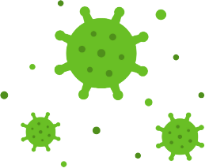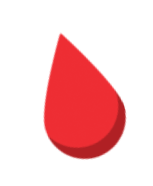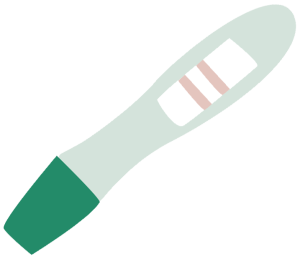HIV
Human Immunodeficiency Virus (HIV) is a virus that damages the body’s immune system so it cannot fight off infections. HIV is most commonly transmitted (passed on) through vaginal or anal sex without using a condom.
AIDS (acquired immune deficiency syndrome) is the name used to describe a number of potentially life-threatening infections and illnesses that happen when your immune system has been severely damaged by the HIV virus. While AIDS cannot be transmitted from one person to another, the HIV virus can. With an early diagnosis and effective treatments, most people with HIV will not develop any AIDS-related illnesses and will live a near-normal lifespan.
HIV lives in the blood, semen, and vaginal fluids. HIV is transmitted when one of these fluids from someone with HIV enters someone else’s blood. The most common way for HIV to be transmitted from one person to another is through having unprotected vaginal or anal sex. This is because these are the types of sex which are most likely to cause tearing of the skin, which gives access to the bloodstream.
HIV can be transmitted through:
- Vaginal sex
- Anal sex
- Sharing sex toys
- Sharing needles (find out more about drugs)
- Oral sex: the risk of this is much lower, but there is a greater risk if someone with HIV ejaculates (comes) in your mouth, and you have ulcerated or bleeding gums.
- Pregnancy, childbirth or breastfeeding: this is very rare in the UK. There are steps that can be taken to reduce the possibility of the child contracting HIV, including giving the mother and child antiretroviral HIV drugs, delivering the child by caesarean and not breastfeeding the baby.
Bodily fluids such as urine, sweat or saliva do not contain enough of the virus to infect another person. You cannot get HIV from shaking hands, kissing or hugging, using other people’s cutlery or cups, sharing towels, toilet seats, or going to swimming pools.
Testing for HIV
HIV can’t be tested until at least four weeks after exposure to the virus, with more accurate results if the test is done six weeks after exposure to the virus. The test does not detect the virus itself but the antibodies that your body has developed to fight it.
Testing for HIV involves taking a small sample of blood for analysis. The test is either sent away to a laboratory and results come back in a few days, or same-day tests can give an instant result. If you are getting a test in clinic, this is usually from a nurse who will take a blood sample with a needle.
Depending on where you live, you also might be able to order an STI home test kit for HIV or get tested at a community location if Point of Care Testing is available.
How to protect against HIV
PrEP is a pill you can take before sex that offers near complete protection from HIV. It is a very effective tool for people at risk of HIV, especially those who may find it difficult to use condoms every time. PrEP is now available on the NHS. Click here to learn more.
If you have been exposed to HIV in the last three days, then a short course of anti-HIV medication (PEP) can prevent you contracting the infection. If you think you may have been exposed to HIV in the last three days, you should contact us as soon as possible. If we are closed, you should go to A&E.












